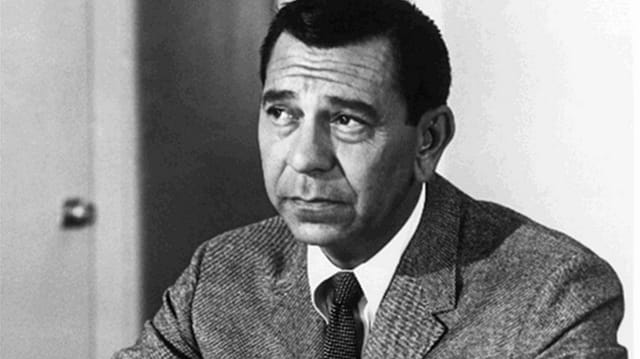YOU MAY remember Larry Stanley, the professor/furniture builder who moonlights as my trusted advisor on all things literary. Literary!… what a pretentious word, can’t believe it rolled off my fingers and onto the keyboard…
Larry teaches writing at Brown and is one of the few honest critics I know. He’ll read your scribble and shoot you straight. Don’t ask him for his opinion if you don’t like to rewrite. All good writing is rewriting, of course. I touched on this about a year ago here.
When Larry read my novel manuscript (last year? the year before?), he said Good work, impressive, now that you’ve got 140,000 words down on paper you’re warmed up and prepared to write your novel. Start over, he said, and this time take off your reporter’s hat. You reported the hell out of this story. Stop doing that. Work on understanding that the action in a novel isn’t the plot.
Okay, I… hmm… I had to think about that one for a while. And then I saw that he was right. The book is too locked-in to real time, too much like a stage play. I directed it where I needed to write it.
It’s like Midnight in Paris, where screenwriter Gil Pender realizes his novel isn’t working because the story unfolds too logically. He appeals to Hemingway for help, but Hemingway… you know what Hemingway’s like, he pawns Gil off on Gertrude Stein.
Story is king in every other kind of writing I’ve ever done—news, screenplays, comics; story of crystal clarity. But in a novel things are gauzy around the edges. The narrative voice interprets rather than reports. So how exactly does the language of the text experience the story it’s telling? How is it conscious of its own yarn? The story seems to live behind the language, in the same way that jazz inhabits the space behind the notes.
My story was all there and then some, but the language was non-narcotic on the awareness of the reader. Tell you what, that’s a hard thing to learn when you have 40 years of training in telling stories like Joe Friday.
Here’s Joe humoring Larry on artsy-fartsy theories of the novel. Eventually, Joe finds himself reflecting on why novels written by journalists so often read like the Sunday paper.
This story I’m working on is a good one, with all the big things in it—adventure, love, life, death, rebellion, conflict, triumph. It’s one that Larry likes and has read in a dozen incarnations since 2008, when I wrote the first draft, as a screenplay.
I wrote it on the road, while motorcycling up and down the Atlantic coast that winter. Wrote about half of it in Key West while camped in the sideyard of a house rented by a couple I had met on Smathers Beach. They were from Michigan, quit their jobs to move to the Conch Republic and sell burgers out of a trailer they pulled behind a white Ford pickup. I’ve often wondered if they’re still there working on dropping out or have slouched on home to the workaday world.
Anyway, their sideyard was a better campsite than the mangrove swamps, the hidden places right in the thick of Key West, home to the hardcore hobos, druggies and nut jobs sucked down to Mile 1, the sump where the road ends. I’ve often thought Key West should mark Mile 2,369 and Mile 1 should be in Fort Kent, Maine, ’cause nobody’s ever hit the road in Key West dreaming of making Fort Kent, brother.
No, their tragic selves follow the U.S. Route 1 gravity south, there to go round and around the gyre. Now and again a story may bolt out of the mangroves in the dark, just ahead of demons real or imagined, get killed by a car, cops shrug, now they’ve got paperwork to do on somebody who walked away from all their paper somewhere else, been there seen that. Best to make friends and move into somebody’s sideyard.
Space is tight in a screenplay, at most you’ve got 120 pages to play with, maybe 20,000 words. When I sat down to write the same story as a novel, I thought, ah, now I have unlimited space to get in all the story I had to chop out of the script. And before I knew it, the book had the heft of seven screenplays.
The idea was to write a page-turner, create a likeable protagonist and keep the reader eager to know what she does next. But Larry says the story needs to move indoors, so to speak, into the space between the ears, give up a little heat and be something more like literature, so… all right… I’ll put in the time to figure out what it is that he knows and I don’t.
When he suggests novels I can learn something from, I read them. Not to imitate another writer—that would bore me, and Larry would be the first to say Don’t imitate. But he wants me to see what they’re attempting to do (and not always succeeding) with language, text, structure, the narrative voice and what it knows, how they compress days into seconds and draw out seconds into chapters.
On Larry’s say-so I gave Michael Chabon’s Telegraph Avenue a whirl and found it unreadable. Didn’t know what was going on, didn’t care about any of the characters… That surprised me, given how much I had enjoyed Chabon’s Gentlemen of the Road.
I marvel at the tricks that Steinbeck pulls. It’s all sleight-of-hand, which rubs my reporter’s instincts the wrong way. Often there’s no way his narrator can know what he claims to know. But where I call bullshit, Larry calls art.
Despite his tricks—Larry would say because of them—Steinbeck draws you into his dreamworld. So Larry has me reading things like East of Eden, and E.M. Forster’s A Passage to India, and then reading what Steinbeck and Forster wrote about writing; Steinbeck in Journal of a Novel, and Forster in Aspects of the Novel.
At 63, I seem to be getting a free Ivy League education! Feel free to think of me as the only trustafarian West Philly ever produced.
Some of his other recommendations I’d already read, like John Gardner’s books on writing, The Art of Fiction and On Becoming a Novelist.
Gardner’s novels never grabbed me but his short stories are wonderful. The Art of Living and Other Stories is one of my favorite volumes of all time.
My dog chewed my copy to bits one night 30 years ago. I always said Blue took a dislike to Gardner because the title story, The Art of Living, is about a crew of motorcycle dead-enders who break into a Chinese restaurant one night to kill, cook and eat a dog.
Gardner was a Harley man, by the way. He met a motorman’s fate in 1982, in my home state of Pennsylvania. Mixing alcohol and motorcycles—who hasn’t, but… oops, you still need to mind your line on those high-speed sweepers, Moe… Focus, focus, focus…
I was sorry to see Gardner leave the road and scribble his last while still in his 40s. He had a good 40 more years of storytelling in him.
I may need 40 more myself to get this manuscript ready for a publisher to read.
Tony DePaul, March 11, 2018, Cranston, Rhode Island, USA






Tony,
I had her out the other day, just to get her cleaned up, new fossil fluids and fresh crisp late winter air into her lungs.
While I still have a love affair with the RK, bought a new Road Glide Ultra last year and it is one helluva machine. I am going to peddle the RK to someone that will appreciate her the way I did/do. (it’s a tough choice on wording the tense right there) She has a fresh spit shine on her shoes and is as pretty as the day I brought her home. Ageless unless you check her birth certificate.
These machines take on an identity of their own and we really grow to love them as they get us to our destinations by way of the ride. To me, it’s always been about BOTH and it is a lot more difficult to separate myself from this object of my desire than I had anticipated.
Ride On.
Matt
Bettendorf, IA
Great news about the RG, Matt! I’ll bet you’re enjoying the Milwaukee Eight. I hear only good things about it.
I always said my next Harley would be a Road Glide, and maybe it will, but after 14 years on the RK I can’t think of a single thing I don’t like about it.
Which Road Glide did you go for, Special or the Ultra? I hear they’re two very different rides.
Tony,
Good pen on Gardner and I had to look him up. An Eagle Scout and he spent time in Iowa, no doubt contributing to our top ten status for alcohol consumption while earning other education wallpapers, just down the road a piece.
Be safe and keep scribblin’.
Matt
Bettendorf, Iowa
Hey! Glad to know you’re still out there, Matt. Still riding the RK?
I had forgotten about Gardner’s Iowa connection, I mostly associate him with New York and Pennsylvania. I think he was teaching in Binghamton when I first started reading him.
Ride safe out there!
Most of my working career, I wrote “interpretive” signs about animals. I tried to make them short, but meaningful. As much rewriting as I did with my little labels and short articles and as much time as it took, I can’t imagine what it would be like to write a novel. I can assure you that I will never find out. Charge on bravely, sir. I’ll be cowering here behind my computer screen.
Thanks, Jim. Maybe I’ll write part of it in Kansas this spring. With any luck, I’ll be passing through on my way to… somewhere.
Having never written a novel, and having reached 75, the odds are excellent that I won’t. Which makes me an expert. So here’s my opinonYou are a hell of a writer. While I agree that writing is rewriting, there comes a point where you have to trust your instincts and your talent.
As for sounding like the Sunday paper, don’t look at your newspaper background as a curse, because by now it’s too late. It’s altered your brain forever and therefore it’s going to figure into whatever you do, so just accept it and put it to work for you.
There’s a reason people used to read newspapers and sometimes still do. Among the blessings: newspaper writing gets to the point like no other form, and it’s the language of that narrow spectrum of our being – the provable, factual, known, agreed-upon part of our lives. I say it’s yours to use as you see fit.
Words of wisdom, thanks for that, Brian.
BTW, you may yet write a novel. One set in Newport, of course. What’s 75? Right now I’m reading Noir, by Robert Coover (a friend of Larry’s, taught with him at Brown). Coover’s 86 and still cranking them out.